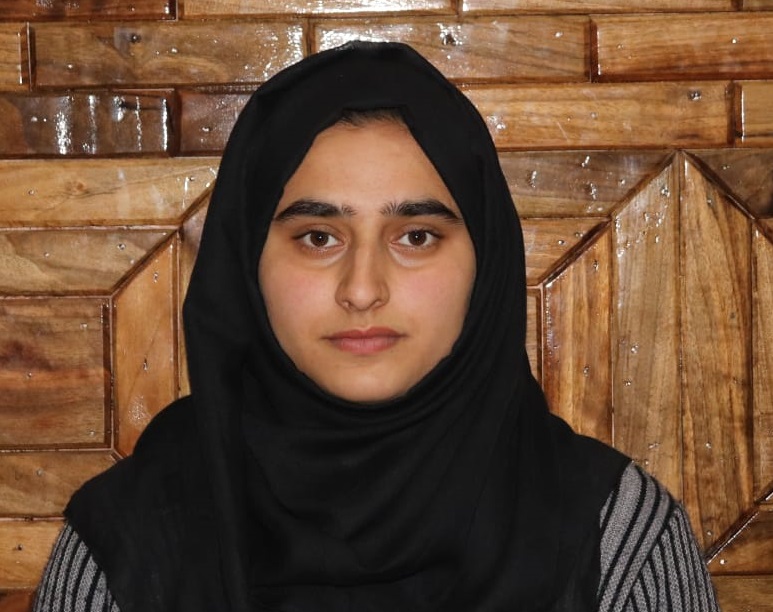by Ulfat Iqbal Rather
The need of the hour is that law enforcing agencies need to check the spread of hatred, homophobia and privacy breach by holding people accountable and not letting them celebrate the evils that defunct the social fabric of India.

In the present-day world, the internet has tiled the way to make peoples’ life more advanced. It offers a bundle of communication channels to connect people living in different corners of the globe. The Internet has revolutionized the life of people in all spheres however, the fact that you have to take the bad with the good can be easily ascribed to the digital revolution as its misuse has resulted in perilous happenings.
At the same time, the internet is being used as a device of psychological harassment and sexual intimidation as its misappropriation has dissolved our privacy protections. Online transgression has deprived people of their dignity and personhood. Blackmailing on the internet is not a new phenomenon and a woman is not an unusual victim. In an already gender-stereotyped society, cybercrime against women in India is emerging as the biggest challenge law enforcement agencies have to cope with.
Cyberbullying comes in different forms but when morphed sensual pictures of women are put on the internet for their online auction; it becomes a life-threatening exercise for the victim. It harms the reputation of the victim, humiliates them causes enormous mental pressure on them and in some cases leaves no option for them but to end their life
Growing Bullying
India in the last few years has witnessed a surge in internet users and it is expected that in the coming years the active internet users will be around 900 million. However, with this digital transformation, the growing worry is that it will also intensify cases of cybercrime, targeting those who voice their opinions fearlessly.
In 2021, the cybercrime cases in India gained hype but the two nefarious instances that hit the headlines was the online auction of Muslim women through two sophisticated apps; sulli deals and Bulli bhai. It was a distressing act that sexually abused minority of Indian women swallowed their dignity by relocating their pictures that were illegitimately borrowed from their social media accounts and then put on ‘sale’.
In another attempt, the hackers targeted journalists through a secret Tek Fog app to abuse and harass them just to silence their voices. Rana Ayyub, an author and valiant face of journalism topped the list with more than 22000 abusive, threatening and slanderous tweets followed by two other famous journalists Barkha Dutt with 19785 and Nidhi Razdan with 18797 insulting tweets. There are hundreds of them who fall prey to this radicalized mindset. The common thing among the victims of this online abuse is that they are the fierce critics, political antagonists and as reported by The wire ‘those whose work or posts run counter to BJP’s official narrative.’
Not A Sudden Affair
This abuse of young, as well as senior citizens, did not take place suddenly. What we are observing from the past many years is that there is a nexus between the political class who advocate hate speech and radical ‘spiritual’ leaders who are reinforcing the venom willingly. The resultant antagonism remains unchecked, which bounces upswing and reinforces an extremist belief among the opinion followers. This leads them to believe that fundamentalism and intolerance is the only way to gain ‘supremacy’ leading to polarization, which shows no signs of abating.
The outcome of this process is obvious and its consequences are nasty. One among the arrested in Bulli Bhai case is Neeraj Bishnoi, a 21-year-old, who was influenced by religious hate speeches as is evident from his jingoistic, radical social media posts. Such is the intensity of this indoctrinated hatred that the perpetrator has no regret of committing this heinous crime. This hate and fearlessness that Bishnoi expresses derive its strength from political patronization.
The Recent Speech
This process of polarization in the name of religion by hate mongers has sown the seeds of animosity and hatred between communities. Recently in Dharam Sansad, a religious gathering organized at Haridwar of Uttrakhand, Hindu ‘spiritual’ priests openly vilified minorities through their provocative speeches and proclaimed their genocide. It only helped in fracturing the social and communal fabric of India as the hate propelled in Haridwar spread rapidly thereby gaining consent from the like minds thus validating and encouraging them more than ever.

This hatred ultimately translates into actions in the form of Sulli deals, Bulli Bhai, Tek Fog, Liberal Doge leading to racism, misogyny, sexual abuse of women and the internet aids in achieving their nefarious designs rapidly.
The need of the hour is that law enforcing agencies need to check the spread of hatred, homophobia and privacy breach by holding people accountable and not letting them celebrate the evils that defunct the social fabric of India.
(The author is a second-semester student studying at GDC for women, Anantnag. The opinions expressed in this write-up are those of the author’s and do not purport to reflect the views of Kashmir Life.)















